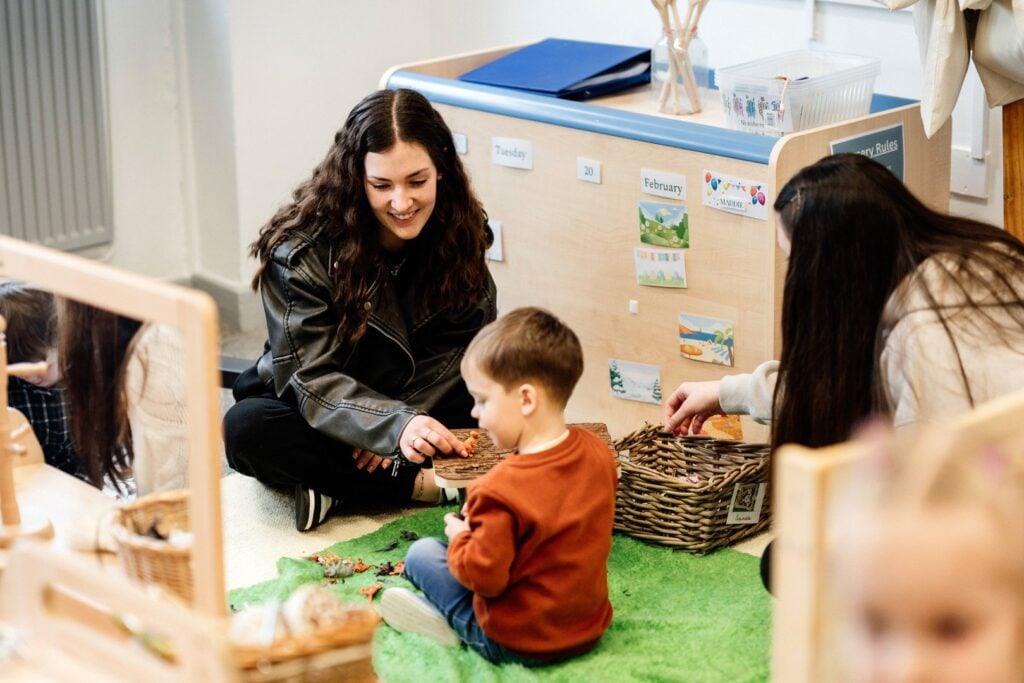This Apprenticeship is designed for Early Years Practitioners to develop key knowledge, skills and behaviours to support progression towards management responsibilities.
Key Skills:
• Promote health and well-being in setting by encouraging babies and young children to consume healthy and balanced meals, snacks and drinks and be physically active
• Carry out respectful care routines appropriate to the development, stage, dignity and needs of the child
• Communicate with all children in ways that will be understood, including verbal and non-verbal communication and encourage babies and young children to use a range of communication methods.
• Work with colleagues to identify and plan enabling environments, activities (both indoors and outdoors), play opportunities and educational programmes to support children's holistic development.
• Observe children, assess, plan and record the outcomes, sharing results accurately and confidentially in line with expected statutory frameworks and setting requirements.
• Work co-operatively with colleagues, other professionals and agencies to meet the needs of babies and young children and enable them to progress. Work alongside parents and/or carers and recognise their role in the baby's/child's health, well-being learning and development.
Key Knowledge and Behaviours:
• How children learn and expected pattern of babies and children's development
• The importance of children's holistic development of speech, language and communication, personal, social and emotional development, physical development, literacy and numeracy
• The legal requirements and guidance of safeguarding, security, confidentiality of information and promoting the welfare of children and own role and responsibilities in relation to this
• Ways to communicate with all children appropriate for all their stages of development
• The key stages in the observation, assessment and planning cycle and the value of observation for the child, the parents/carers and the early years setting in planning the next steps.
• Partnership working (including parents/carers) in relation to working effectively with children with special educational needs and disabilities
• Own role and expected behaviours, including the importance of reflective practice and continued professional development to improve own skills and early years practice.
•
As an Apprentice you will be expected to attend college 1 day a month as part of your ongoing 20% off–the–job training. Additional off–the–job training hours are expected to be completed within the workplace, however you may be asked to complete tasks at home via Google Classroom and One–file.
Please note you may also be asked to complete additional English and Maths qualifications as part of the Apprenticeship programme.
